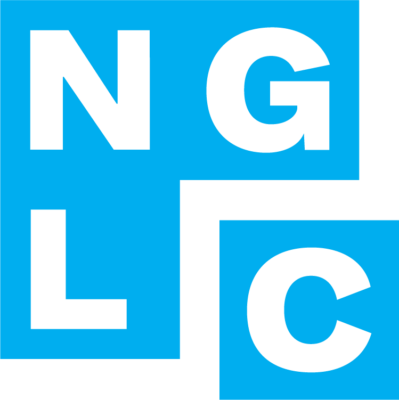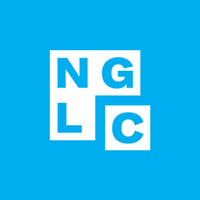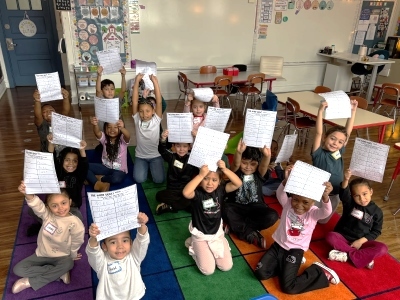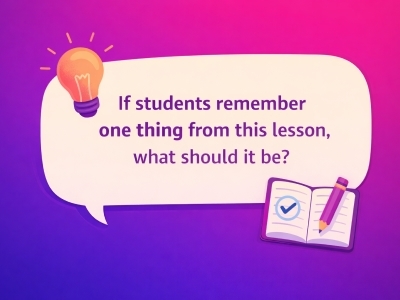PRESS RELEASE: 12 New Breakthrough Models for College Readiness and Completion Receive NGLC Funds
Topics

We’ve all had the experience of truly purposeful, authentic learning and know how valuable it is. Educators are taking the best of what we know about learning, student support, effective instruction, and interpersonal skill-building to completely reimagine schools so that students experience that kind of purposeful learning all day, every day.
$4.5 million in grants awarded for comprehensive new secondary school and college models
June 19, 2012 (Washington, DC) – Next Generation Learning Challenges (NGLC), an initiative dedicated to improving college readiness and completion, today announced $4.5 million in grants for comprehensive new secondary school and college models that use technology to reach targets for affordability and student success. Grants were awarded for eight secondary school models (totaling $1.2 million) and four postsecondary programs (totaling $3.3 million).
This announcement represents the second of three cycles of funding in NGLC’s $12 million third wave of investment, which is focused on comprehensive, “breakthrough” models for improving college readiness and completion rates in the U.S. Wave III targets institutions and organizations launching new instructional models that incorporate technology to personalize students’ learning experiences, supported by business models that can support sustainable expansion and adoption plans.
“We believe these models will be broadly applicable across secondary and post-secondary education,” said Andrew Calkins, Deputy Director of NGLC. “Our goal is to support, test, and refine these comprehensive next generation learning approaches; collect evidence of what works; and then help others adopt those models to improve student success, access, and affordability. A key enabler of all the models is technology.”
Grantees Developing Breakthrough Models for College Readiness are creating new, whole-school solutions to improve student performance across secondary education. The eight new grantees will receive $150,000 pre-launch planning grants, and all will be eligible for up to $300,000 in one-to-one matching funds. They include:
Academy 21 at Franklin Central Supervisory Union (VT) Academy 21, which will serve a high need, predominantly rural community with a large percentage of first generation college students, is an early college high school model, focusing on creating customized, flexible pathways that prepare all students for success in college and career.
Cornerstone Charter Schools(MI) Cornerstone, a Detroit-based charter management organization, is opening Cornerstone Health High School in fall 2012 to prepare Detroit students for college and health-focused careers. The high school, which incorporates a complete redesign of teacher and student roles, will have strong community ties and a deeply embedded partnership with Detroit Medical Center.
Da Vinci Schools (CA) For its new, next generation learning school, Los Angeles-based Da Vinci Schools is integrating blended learning, early college, and real world experiences with the project-based approach of its three existing charter schools.
Education Achievement Authority (MI) EAA, Michigan’s statewide turnaround school authority, will create a student-centered system of education where students are organized by instructional level rather than grade level and progress via mastery rather than seat time. EAA’s approach, which will be supported by a custom-designed learning management system, will be introduced in a K-8 school in Detroit this fall and will be rapidly scaled up to other EAA-managed schools in subsequent years.
Match Education (MA) Match Education operates charter schools for low-income students in Boston and trains teachers. Its schools are among the highest-performing in Massachusetts. Match Education will seek to open a new charter school in the fall of 2013. The school will be designed on Match's model of one-on-one tutoring and will use technology to customize teaching and learning.
Schools for the Future (MI) Schools for the Future is a transformative recuperative college prep model for youth performing significantly below grade level in reading and math proficiency. SFF combines cutting-edge youth development practices in five domains: competency-based progression to graduation, a unique blended curriculum, a program to build cognitive confidence and self-efficacy, real-time student performance analytics, and online and community-based learning opportunities through mobile technology.
Summit Public Schools (CA) Summit Public Schools, a California-based charter management organization, is designing a next generation competency-based school model for grades 6-12. Summit’s new learning model will build on the successful practices of its current network of schools.
Venture Academies (MN) Venture Academies, a new Minneapolis-based charter management organization, plans to open a school serving grades 6-12 in fall 2013 that focuses on personalized and mastery-based learning, accelerated college credit attainment, and cultivation of entrepreneurial leadership.
Grantees Focused on Breakthrough Models for College Completion are developing next generation online and blended programs designed to significantly improve student access, persistence, and completion, without compromising the quality of learning outcomes. Applicants were eligible for awards up to $1 million.
New Charter University ($300,000) New Charter is an accredited university that allows anyone to access all courses online for free in a self-paced, outcomes-based, personalized learning model; students only pay tuition of $199 per month when they are ready to earn credit towards a degree within a faculty-supported learning environment. NGLC will fund a comparative research study of online students enrolled at New Charter and students enrolled in a blended learning environment, delivered through a partnership with the Community College of the District of Columbia.
Northern Arizona University ($1,000,000) Northern Arizona University is developing a Personalized Learning Division, where students will pay tuition based on the length of time they take to complete courses and demonstrate competency, making it an incentive-driven, competency-based approach.
Southern New Hampshire University ($1,000,000) Southern New Hampshire University is pioneering the Pathways Project, which will offer an associate degree with content and assessment delivered online in a self-paced model. Learning will be organized by an individualized Knowledge Map that acknowledges what students already know, reflects what employers need, and aligns with student goals.
Texas Higher Education Coordinating Board ($1,000,000) The Texas Higher Education Coordinating Board, South Texas College and Texas A&M University-Commerce, will offer a technology-enabled Bachelor of Applied Sciences with an emphasis on organizational leadership. Students will earn credits in a self-paced, year-round format that can reduce time-to-degree to 1.5-3 years, depending on prior education and work experience.
NGLC is a collaborative partnership led by EDUCAUSE, the leading organization for information technology in higher education, and funded primarily by the Bill & Melinda Gates Foundation. Other partners include the League for Innovation in the Community College, the International Association for K-12 Online Learning (iNACOL), and the Council of Chief State School Officers (CCSSO). Funding for NGLC has also been provided by the William and Flora Hewlett Foundation. To date, NGLC has awarded nearly $23 million in grants to 65 organizations and institutions focused on piloting and scaling new school and degree models, compiling evidence of what works, and accelerating adoption by creating cohorts of change agents.
“These awards continue NGLC’s exploration of how schools and colleges can leverage new models and technology to provide better and more affordable education to those who need it most,” said Gerardo de los Santos, president and CEO of the League for Innovation in the Community College. The projects were all required to show that they will serve disadvantaged student populations (at least 40% Pell-eligible or, for secondary schools, at least 40% free/reduced-price lunch).
About NGLC
Next Generation Learning Challenges is a collaborative, multi-year initiative created to address the barriers to educational innovation and tap the potential of technology to dramatically improve college readiness and completion in the United States, especially among low-income and minority students. NGLC is guided by the belief that providing investment capital to expand the use of proven and emerging learning technologies, collecting and sharing evidence of what works, and fostering a community of innovators and adopters will result in a robust pool of solutions and greater institutional adoption which, in turn, will dramatically improve the quality of learning experiences in the United States. NGLC is led by EDUCAUSE in partnership with the League for Innovation in the Community College, the International Association for K-12 Online Learning (iNACOL), and the Council of Chief State School Officers (CCSSO).




